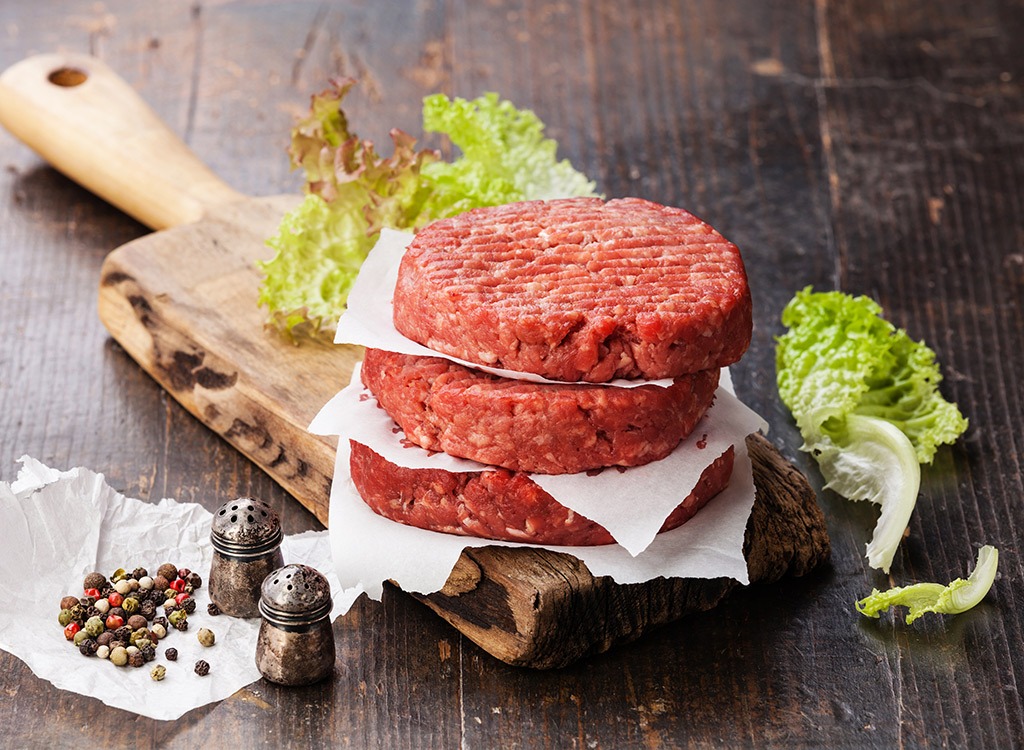Should I Eat Red Meat?

Vegetarians and vegans aside, you'd be hard-pressed to find an American who doesn't enjoy occasionally chowing down on a juicy hamburger or biting into a tender steak. That said, numerous studies have repeatedly shown that eating too much red meat isn't great for your overall health, so finding a happy and nutritious medium is key.
While The American Institute for Cancer Research recommends eating no more than 18 ounces of cooked red meats each week to reduce cancer risk, doctors tend to be even more strict about red meat consumption. Since red meat is high in cholesterol, most medical professionals recommend around two three-ounce servings of red meat per week.
The Connection Between Red Meat Consumption and Negative Health Effects
What exactly is it about red meat that makes an abundance of it detrimental to your health? A study conducted at the Harvard School of Public Health and published in the Archives of Internal Medicine that followed more than 121,000 men and women for an average of 24 years found that every extra daily serving of unprocessed red meat (steak, hamburger, pork, etc.) increased the risk of dying prematurely by 13 percent. Processed red meat, such as hot dogs, sausage, bacon, and the like, the study found, upped the risk by 20 percent.
Though other studies have seemingly minimized the links between eating too much red meat and a myriad of health issues, the authors of the Archives paper suggest that the increased risk from red meat may come from the saturated fat, cholesterol, and iron it delivers. An abundance of saturated fat, for example, can raise your cholesterol, which in turn increases your risk of heart disease and stroke, while too much iron can damage the liver and heart and lead to other diseases, such as diabetes and arthritis.
Negative Health Effects of Eating Too Much Red Meat Could Be Due to Something Else
While many studies connect the negative health effects of high red meat consumption to red meat specifically, there is another side of the coin. That's because nutrition research is generally limited to finding correlation and not necessarily causation. So, it's hard to say that these health issues are solely caused by eating too much meat. In fact, there could be something else going on with these diets.
One theory is that those who eat more red meat also eat fewer antioxidant-rich vegetables. A recent Journal of the American Osteopathic Association review that took a close look at 1.5 million people's diets found a link between increased red meat consumption and early death.
Instead of placing the blame on red meat alone, the authors of the study speculate that the increased risk of all-cause mortality is due to the fact that people who eat a lot of red meat also tend to eat fewer plant-based foods, so they consume fewer of their protective antioxidants and nutrients.
The takeaway? Eating too much red meat might be an issue because you're letting protein-rich, satiating meat crowd fruits and veggies off your plate.
How You Cook Red Meat Matters
Furthermore, potentially cancer-causing compounds generated when cooking red meat at high temperatures—known as nitrosamines—could also be part of what makes too much of this particular food harmful to your health.
Research presented by the American Heart Association found that in a long-term study of nearly 104,000 men and women, none of whom had high blood pressure, diabetes, heart disease, or cancer when they enrolled, 37,123 people developed high blood pressure during an average follow-up of 12-16 years.
Among participants who reported eating at least two servings of red meat, chicken or fish a week, the analysis revealed that the risk of developing high blood pressure was 17 percent higher in those who grilled, broiled, or roasted beef, chicken or and fish more than 15 times per month, compared with less than four times a month, and 15 percent higher in those who prefer their food well done, compared with those who prefer rarer meats.
So How Much Red Meat Should You Eat?
So what's a red meat lover to do? You can always talk to your doctor to find what works for your diet and lifestyle. Generally, experts recommend limiting your red meat consumption to about two three-ounce servings a week.
And when you do eat red meat, such as ground beef, a T-bone steak, or prime rib, make sure to use grass-fed beef. Why? Because it is lower in unhealthy fats than other forms of beef and actually contains more heart-healthy omega-3 fatty acids than some fish. Speaking of things that are healthy, check out this list of the 25 Best Carbs That Will Uncover Your Abs!








